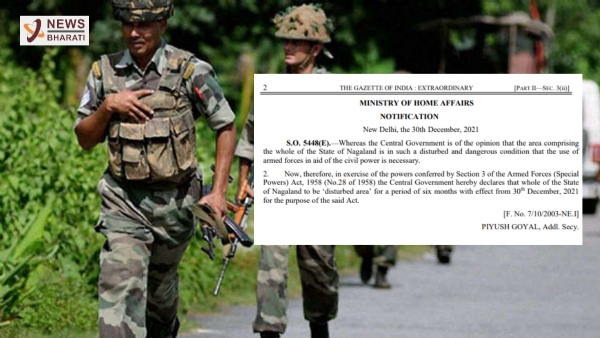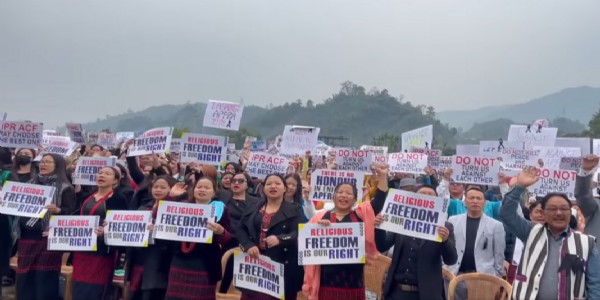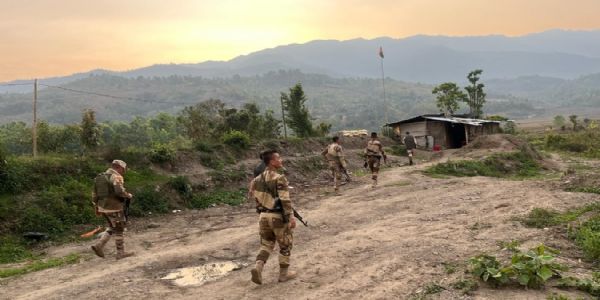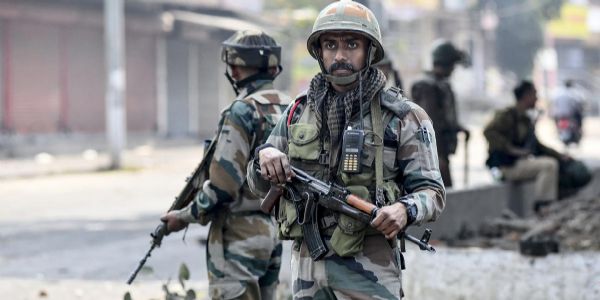Centre extends AFSPA in Nagaland for 6 more months; Full details inside-
The Centre termed Nagaland is in such a "disturbed and dangerous condition" that the use of armed forces in aid of the civil power is necessary.
Total Views | 783
New Delhi, Dec 30: Amid the debate going on whether Armed Forces Special Powers Act, 1958 or AFSPA should be removed, the central government on Thursday extended the Act for another six months in Nagaland. It has termed the region is in such a "disturbed and dangerous condition" that the use of armed forces in aid of the civil power is necessary.

The announcement was made through a gazette notification issued by the Ministry of Home Affairs. It has extended the Act till June 30, 2022. The Army is currently conducting a court of inquiry into an ambush that went wrong on December 4, killing several civilians.
"Whereas the Central Government is of the opinion that the area comprising the whole of the state of Nagaland is in such a disturbed and dangerous condition that the use of armed forces in aid of the civil power is necessary," the notification said.
"Now, therefore, in exercise of the powers conferred by Section 3 of the Armed Forces (Special Powers) Act, 1958 (No.28 of 1958) the Central Government hereby declares that whole of the State of Nagaland to be 'disturbed area' for a period of six months with effect from December 30, 2021 for the purpose of the said Act," it mentioned.
What is AFSPA?
The Armed Forces Special Powers Act (AFSPA), 1958 provides certain special powers to a member of the Armed Forces in areas in the Arunachal Pradesh, Assam, Manipur, Meghalaya, Mizoram, Nagaland and Tripura. The powers were also extended to forces deployed in Jammu and Kashmir as well. Interestingly, the law was first introduced by the British to suppress the Quit India movement in 1942.
AFSPA confers special powers on the armed forces in areas deemed "disturbed". In a 'disturbed area,' a military officer can fire upon an unlawful assembly of five or more people if the need arises or even for illegal possession of firearms.
Also Read: Indian Army inquiry team to visit Nagaland firing site on December 29
Moreover, according to the law, no arrest and search warrants are required for any operation. It also provides protection to persons acting under Act, which means 'No prosecution, suit or other legal proceedings shall be instituted, except with the previous sanction of the Central Government, against any person in respect of anything done or purported to be done in exercise of the powers conferred by this Act'.
As reported earlier, the Central government had formed a seven-member committee to suggest withdrawal of the AFSFA from Nagaland and asked to submit its report within three months. Apart from that, the Centre on Sunday constituted the panel, headed by a secretary-rank officer, to examine the possibility of lifting the Act in the state, apparently to soothe the rising tension in the northeastern state.
Also Read: Nagaland firing incident: Amit Shah directs to form a committee to look into the withdrawal of AFSPA
Meanwhile, the special investigation team (SIT), set up by the Nagaland government to probe the botched operation by 21 Para-Special Forces in the state, will start questioning the officers and soldiers involved in the incident from Thursday at Jorhat in Assam. The SIT is expected to submit its report next month.





